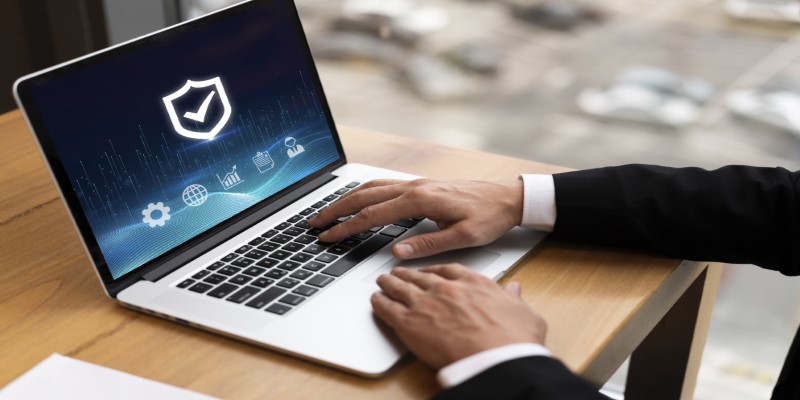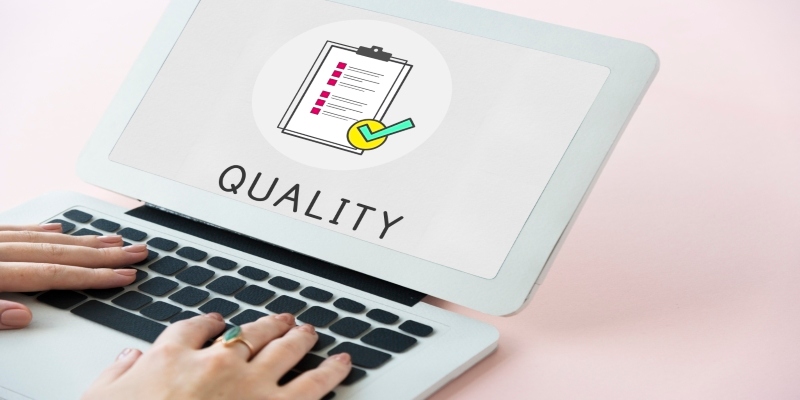Shop Smarter, Shop Safer: Navigating the World of Online Shopping
Nov 29, 2023 By Triston Martin
Welcome to the digital marketplace, where the convenience of online shopping meets the need for security. With the rise of e-commerce, it's crucial to navigate the online shopping maze cautiously. In this guide, we'll explore practical tips and tricks to keep you safe in the vast world of virtual storefronts.
Understanding the Risks Involved in Online Shopping
The internet is a vast marketplace, but not all vendors play fair. Understanding the risks is the first step to ensuring a secure online shopping experience.
It's like stepping into a bustling city when you embark on your online shopping journey. Just as you would be cautious in a new neighborhood, exercise the same vigilance in the digital realm. Online shopping has its pitfalls, from unsecured websites to malicious actors looking to exploit unsuspecting buyers.
Key Tips for Safe Online Shopping
Let’s now hop onto our expert tips to help you eliminate the risks and navigate online shopping with ultimate safety and peace of mind.
Choosing Secure Websites
Online shopping is only as secure as the website you choose. Stick to well-known and reputable sites to reduce the risk of fraud. Look for "https://" in the URL, indicating a secure connection. This ensures that the information you provide is encrypted and protected from prying eyes.
Avoid suspicious-looking websites that might have misspelled URLs or lack customer reviews. Scammers often create fake storefronts to lure in unsuspecting shoppers. A quick online search for reviews and ratings can save you from scams when in doubt.
Ensuring Cybersecurity
Now that you've found a reliable website let's delve into cybersecurity. This term might sound intimidating, but it's about protecting yourself and your information from online threats.

One crucial aspect of cybersecurity is keeping your devices updated. Regularly update your operating system, antivirus software, and browser to patch vulnerabilities that hackers may exploit. These updates often include security enhancements that shield your device from evolving cyber threats.
Securing Your Payments
When it comes to secure payment, always opt for trusted payment methods. Credit cards and reputable payment gateways offer an extra layer of security. Avoid using debit cards directly, as they are more challenging to recover if compromised.
Additionally, consider using digital wallets or payment services like PayPal. These platforms act as intermediaries, keeping your financial information secure. Be wary of websites that only accept unconventional payment methods or ask for your card details through email.
Password Protection
Your online shopping fortress is only as strong as its gatekeeper – your password. Strengthen your defenses by creating robust and unique passwords for each online store. Avoid using easily guessable information like birthdays or common words.
Implementing password protection measures, such as using a combination of uppercase and lowercase letters, numbers, and special characters, adds an extra layer of security. Consider using a password manager to generate and store complex passwords securely.
Beware of Phishing Scams
Phishing scams are the digital equivalent of a sly pickpocket. These scams often involve emails or messages that mimic reputable companies, enticing you to click on malicious links or share sensitive information.
Stay vigilant and scrutinize emails for signs of phishing. Check the sender's email address for irregularities and hover over links to preview their destination before clicking. Legitimate companies will never ask for sensitive information through email, so be skeptical of unexpected requests.
Two-Factor Authentication
Adding an extra layer of protection to your online accounts is a smart move. Two-factor authentication requires verifying your identity through a second step, such as a code sent to your mobile device. Enable this feature whenever possible, as it is a formidable barrier against unauthorized access.
Platforms offering two-factor authentication often provide detailed instructions on how to set it up. Take a few minutes to enhance your account security, and enjoy the peace of mind that comes with knowing your online shopping accounts are well-guarded.
Customer Reviews and Ratings
In the online city, fellow shoppers are your virtual neighbors. Consider delving deeper into the world of customer reviews and ratings. These insights offer a glimpse into the experiences of others, helping you make informed decisions.
A store with consistently positive reviews is likely a safe bet. On the flip side, numerous negative reviews might be a red flag, prompting you to reconsider your choice.
Privacy Policies and Terms of Service
Every digital city has its rules, and online stores are no exception. Take the time to read through the privacy policies and terms of service of the websites you frequent. Understanding how your data is collected, stored, and used is essential for maintaining control over your online presence. Reputable websites provide clear and transparent policies, ensuring your information is handled responsibly.
Virtual Private Networks (VPNs)
Consider incorporating a Virtual Private Network (VPN) into your online shopping toolkit. A VPN encrypts your internet connection, adding an extra layer of security when browsing and making transactions.

This is particularly valuable when using public Wi-Fi, where cyber threats can be more prevalent. VPNs contribute to creating a secure tunnel for your data, protecting it from potential prying eyes.
Monitoring Your Accounts
Vigilance doesn't end once the transaction is complete. Regularly monitor your bank and credit card statements for any suspicious activity. Set up transaction alerts to receive notifications of any unusual or unauthorized charges. Being proactive in checking your financial statements ensures that you can act swiftly to minimize any potential damage in the rare event of a security breach.
Conclusion
As you navigate the expansive world of online shopping, remember that safety is your ultimate companion. The digital marketplace is teeming with opportunities, and you can explore it confidently with the right precautions. Arm yourself with knowledge, be discerning in your choices, and revel in the convenience of online shopping without compromising your security. Happy shopping!





